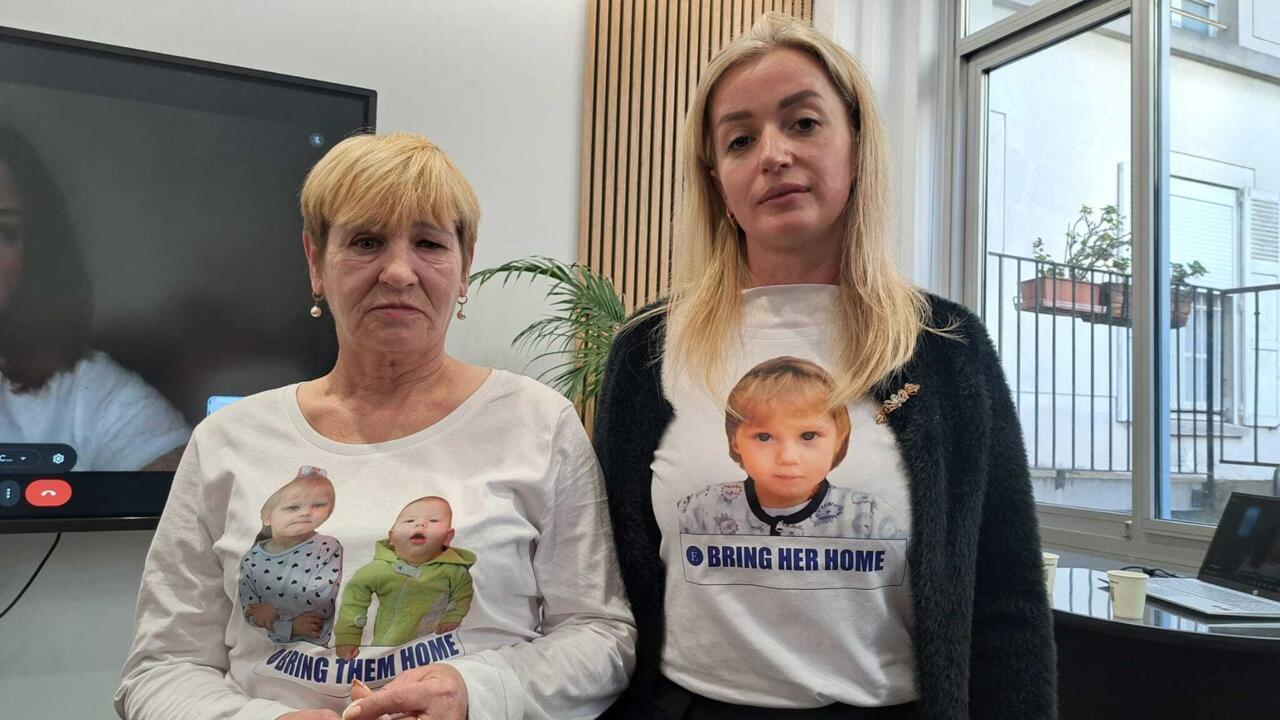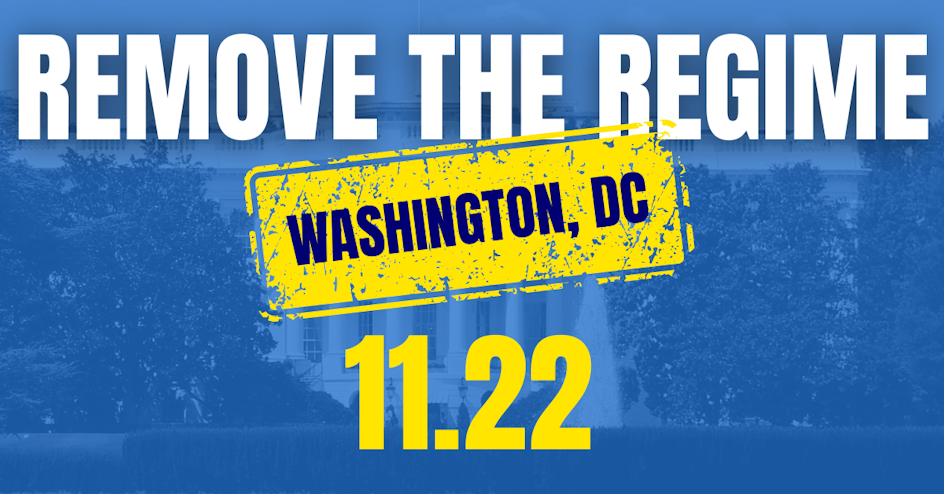Family members of Ukrainian children deported from Kherson by Russia made a rare public appeal for their return on Monday in Paris. Since the start of its full-scale invasion, Moscow has deported Ukrainian children into Russia, often sending older children to re-education camps and putting younger children up for adoption.
Issued on: 19/11/2025 – France24.com
By: Joanna YORK

“I am a grandmother,” 55-year-old Liubov Burina says, her voice shaking with emotion, before she has to take a moment to calm her nerves.
The former seamstress has not seen her grandchildren, Angelina and Yevhen, since March 2022. Due to a family crisis, the three-year-old and one-year-old had been placed in a Kherson orphanage overnight when Russian forces invaded the Ukrainian city.
In the morning, when Burina went to collect the children, they were gone.
“We were looking for them everywhere. We contacted every institution, the police and social services,” she says. “Then an organisation found that they had been moved to occupied Crimea.”
The children were en route to being deported to Russia and had been listed on one of the country’s adoption databases under new identities.
‘We are left without any rights’
The exact number of children deported from Ukraine to Russia and Crimea in the aftermath of the full-scale invasion is unknown. Ukraine puts the figure at 19,546, although this includes children deported with their parents.
Russia says it moved the children from warzones in Ukraine for their safety but has refused to provide the Ukrainian authorities with a list of deported minors, as is required by international law.
The International Court of Justice in 2023 issued an arrest warrant for Russian President Vladimir Putin and his commissioner for children’s rights Maria Lvova-Belova for the unlawful deportation and transfer of children from occupied areas of Ukraine into Russia.
Read moreMother Russia: Maria Lvova-Belova, the Putin ally deporting Ukrainian children
According to research from Yale’s Humanitarian Research Lab, deported children have been taken to at least 210 facilities inside Russia and occupied Ukraine, where the majority of older children are subject to “re-education” and militarisation.
Younger children are more likely to have their identities changed and be put up for adoption.
Burina’s grandchildren were typical of the “vulnerable groups” targeted for deportation, including orphans, children with disabilities and children from low-income families.
“We are left without any rights to get them back”, she says, speaking at a rare press conference in Paris, organised by the Emile Foundation which works to reunite Ukraine’s deported children with their families.
Next to her, Darina Riepina is also hoping to find her children, Maksym and Margarita,
“I’m an ordinary mother. I thought we would live an ordinary life,” she says, through tears.
Riepina was living with her adopted daughter in Kherson in March 2022 and had started the paperwork to adopt Maksym and Margarita, who were living in a local orphanage.
“The package of documents for the adoption was almost ready right when the full-scale invasion began”, she says. She has since completed the process, making her the legal guardian of the three biological siblings.
Riepina and her eldest daughter were forced to flee Kherson without the younger children when Russian forces invaded.
Three-year-old Maksym and 10-month-old Margerita were among 48 children taken from the Kherson Regional Children’s Home by Russian forces.
Read more‘Demographic conquest’: Inside Russia’s campaign to indoctrinate kidnapped Ukrainian children
‘She should be with her family’
Locating and returning deported children is a long and complicated process. In Kherson, families had to wait nine months until the city was liberated before there was a local police force to whom they could report their children missing.
The search for minors who have been deported is complicated by the fact that investigators cannot travel to Russia or occupied Ukraine, and negotiations with Russia are sensitive.
When Kyiv demanded the release of 339 Ukrainian children during negotiations with Moscow in June, Russia said the request was evidence that hundreds rather than thousands of children had been deported.
According to Ukraine, 1,819 children have so far been returned from deportation, forced transfers or occupied territories, partly due to the efforts of international mediators such as Qatar and the United States.
Riepina and a team of volunteers searched for 10 months before they found Margerita. “It was the best news just to hear that she was alive,” she says.
But the joy was short-lived. Her youngest daughter had been moved to Crimea and then to Russia, where she had been adopted by Russian politician Sergey Mironov, a key Putin ally.
She had been renamed and given a falsified Russian birth certificate listing Russian parents, according to a BBC investigation.
Moscow has denied Riepina’s demands to have the child take a DNA test to prove her identity and her biological link to her brother and sister, even though Russian and Ukrainian law prefer that siblings be adopted together.
In October, Margerita celebrated her fourth birthday. “We have no connection with her,” Riepina says. “All we have are the last pictures we saw in the news.”
“She is not a soldier. She shouldn’t be living as a prisoner. Her rights are being violated,” she adds. “She should be free with her family, in her country. Her sister is waiting for her.”
She has even less news of Maksym, although Riepina says he has been located in an orphanage in Russia.
Alongside her, Burina is desolate that she has not been able to see her grandchildren grow up.
“My grandchildren are everything to me. Russia shouldn’t have taken them. I hope that they will be returned one day, and we will live in peace,” she says.





